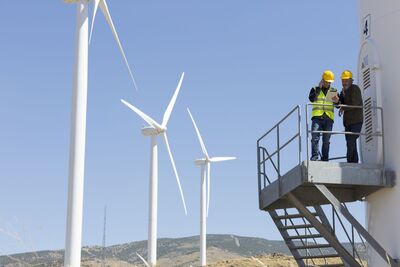Energy insights survey reveals sustainability concerns

Research shows that Australian businesses remain concerned about the impacts of energy security and prices, which could be a catalyst for a range of environmental, social and economic ripple effects.
ABB’s Electrification Energy Insight survey of Australian leaders from small and large businesses across a range of sectors reveals that 89% of respondents feel that the continuing instability of energy is threatening their profitability and competitiveness. More than half (53%) of leaders said the cost of energy will delay them meeting their sustainability targets.
The survey showed 36% of Australian businesses cut spending in some areas over the past year in response to higher energy costs. The biggest cut was on technology spend with 46% of respondents reducing outlay in this area. Spending was also substantially reduced on marketing (36%) and training and development (36%).
Delaying decarbonisation
Respondents further cite concerns that energy pricing and insecurity could delay progress on climate change, with meeting carbon reduction commitments currently considered less of a priority than reducing energy costs.
Over half (53%) of business leaders surveyed said the cost of energy could delay achieving their sustainability and carbon reduction targets by anywhere from one to five years. While reducing energy costs is the top priority for 60% of companies, only 42% currently have reducing carbon emissions within their overall business priorities.
Energy security
More than three-quarters (77%) of business leaders express concern about the security of their business’s energy supply, and many are taking action to address this. Over a third (37%) are worried about further rises in energy costs and 36% are concerned by power cuts and blackouts. In response, 27% have already increased investment specifically focusing on improving their energy efficiency, 19% are switching suppliers and 15% are integrating more renewable energy.

Morten Wierod, President, ABB Electrification, said: “Businesses say they need to insulate themselves from energy prices and insecurity and are re-evaluating current and future spending plans. Taking action to mitigate this is a clear priority, but this doesn’t have to be a catalyst for potential workforce or environmental impacts. Investing in smart and sustainable on-site renewables and energy efficiency technology means businesses can simultaneously cut costs and reduce their emissions. With the right approach, it is possible for industry to achieve cost savings without sacrificing competitiveness, workforces or the journey to decarbonisation.”
Taking action
While businesses overall want to take proactive actions to address their energy challenges, 30% are being put off by the perceived cost of implementing energy efficiency measures, and 21% feel they don’t have the know-how or resources to proceed.
Much of the technology that can help businesses — large or small — to optimise their energy management and reduce costs is already widely available and at a reasonable cost. For example, at a telecoms HQ in Hanoi, smart building technology reduced energy costs by 20%, while retrofitting hardware and using energy management solutions at an ABB factory in Italy has led to 30% energy savings.
To find out more about ABB and its solutions, visit Sustainability in Electrification.
Sustainable organic batteries for future energy storage
A rechargeable proton battery being developed by scientists at UNSW Sydney has the potential to...
CSIRO's solar venture secures $15 million funding
FPR Energy, a new venture from CSIRO, has secured $15 million in seed funding.
Aust partnership leads to solar-powered canola
Riverina Oils, a NSW canola oil producer, has partnered with Australian renewable energy retailer...









